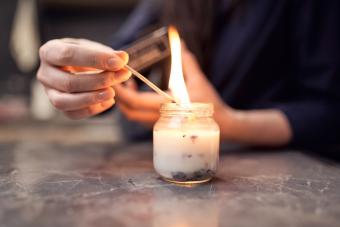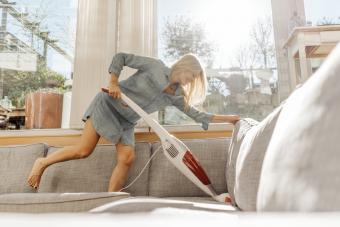
Biodegradable cleaning products claim to help you protect the environment as well as to have a clean, pleasant home. Consumers have more choices than ever before but are these products as environmentally friendly as the manufacturers claim?
What Does Biodegradable Mean?
Most people assume that if a product says biodegradable, eco-friendly, or all natural then it is a safe product to use, both for the environment and the consumer. This is not always true. Keep in mind that lead and lye are all natural products but you wouldn't want to handle either one of them.
There are no government organizations that stand behind the labels to substantiate claims of being biodegradable, eco-friendly or all natural when it comes to household cleaners. This means that there is nothing keeping a company from making these claims. What exactly does biodegradable mean? After all, even a car is biodegradable over a period of centuries.
Choosing Earth Safe Biodegradable Cleaning Products
What most people are looking for when they buy biodegradable products are cleaning products that they can use without having a significant, negative impact on the earth.
Design for the Environment
The Environmental Protection Agency (EPA) introduced a Design for the Environment (DfE) label. The label means that only the safest ingredients are used. To create this criteria and label, the agency compared ingredients in the same class. Solvents were compared to solvents and surfactants are compared to surfactants. In order to qualify for the DfE label, only the safest ingredients from each class may be used. The DfE label is credited with reducing the use of chemicals of concern to environmentalists by over 183 million pound in 2006 alone. DfE has published a full list of products it endorses.
Green Seal
Another organization, Green Seal, has also come out with a stamp which recognizes environmentally safe products. It is an independent non-profit organization and has significantly higher standards than those used for the DfE label. The problem is that while large companies like Johnson and Johnson may carry the seal on some of their products, smaller companies like Seventh Generation may choose not to carry the seal at all. Consumers should not assume that a product is better because it carries one of these seals. Green Seal has published a list of the products it endorses.
Other Biodegradable Products for Cleaning

Some of the best products are not on either list. Companies like Dr. Bronner's, Seventh Generation and Mrs. Meyer's Clean Day are excellent products that are both biodegradable and safe. Other companies to consider are:
- Aubrey Organics
- Earth Choice
- Earth Friendly
- Ecover
- Method
Ingredients to Avoid
If you are looking for biodegradable cleaners for their eco-friendly qualities there are some ingredients that you will want to avoid.
- Alkylphenol ethoxylates (APEs)
- Ammonia
- Butyl cellosolve (aka butyl glycol, ethylene glycol monobutyl)
- Chlorine bleach/sodium hypochlorite
- Diethanolamine (DEA)
- D-limonene
- Glycol ethers
- Nonylphenols (NPEs)
- Petroleum based ingredients
- Phosphates
- Sodium hydroxide
- Sodium laureth sulfate (SLES)
- Sodium lauryl sulfate
- Terpenes
- Triclosan
Choosing cleaners without these ingredients will help protect the environment.
Making Your Own Cleaning Products
Probably the best way to ensure that you are using biodegradable cleaning products that are safe for the environment is to make them yourself. You can make laundry detergent, window cleaners, all purpose cleaners and other items at home from ingredients that you have in your kitchen or pantry.
Some of the common ingredients in homemade cleaners are probably very familiar to you:
- Baking soda: Deodorizes and scrubs without scratching
- Lemon juice: Cleans, bleaches and deodorizes
- Soap: A few drops of a natural soap like Dr. Bronner's acts as a surfactant
- Vinegar: Deodorizes, kills germs and cleans
You can find instructions for making homemade biodegradable cleaning products on many websites. A few places you may want to look include:
- Earth Easy
- Growing a Green Family
- How to Make Organic Homemade Cleaning Products
Avoiding Greenwashing
Greenwashing is a term that is used to describe a company that claims to be environmentally friendly but in actuality is not. Many of the large corporations that produce biodegradable and all natural cleaners are guilty of this act. If you don't want to make your own cleaners in order to avoid the possibility of greenwashing, it is best that you buy cleaners from companies like Seventh Generation that have a track record of being environmentally and socially responsible. Do your research and carry a list of the ingredients that you should avoid. Reading labels is the best way to choose a product that is right for you.







